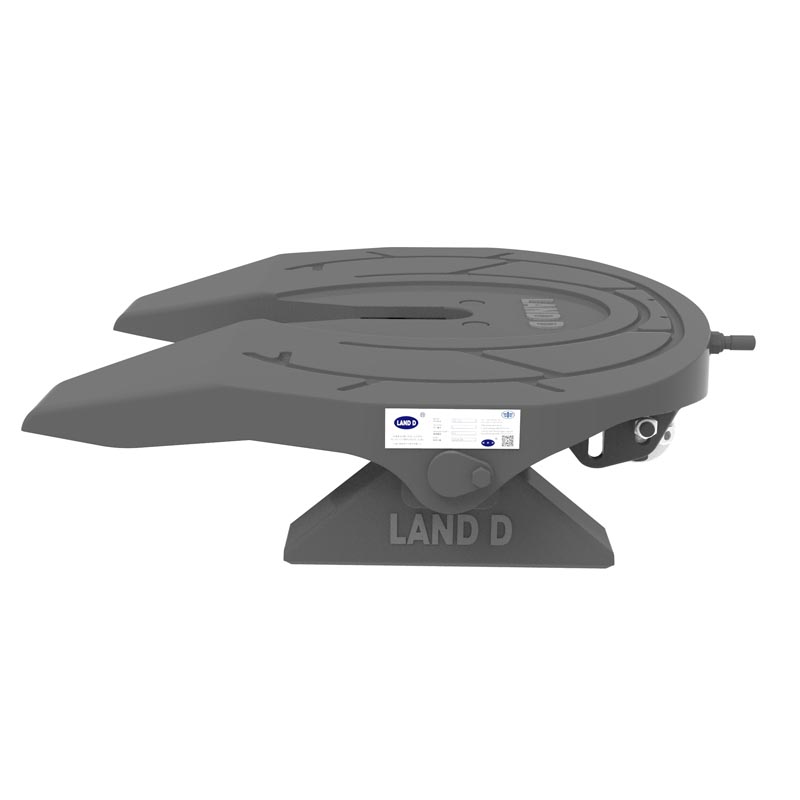Ci sono diverse ragioni per cui rimorchi a quinta ruota sono tra i camper più popolari sul mercato. Sono spaziosi e lussuoso e costituiscono ottimi campi base per viaggi e avventure all'aria aperta. Tendono anche ad essere più convenienti di un camper equipaggiato in modo simile e offrono di più traino stabile viaggiando a velocità autostradali. Inoltre, questi camper offrono molta versatilità, consentendo ai proprietari di utilizzare i loro veicoli trainanti per esplorare una zona mentre il rimorchio rimane in campeggio.
All of these characteristics are major reasons why fifth-wheelers are such attractive options for RV buyers. But before you plunk down your hard-earned money on one of these large trailers, there are a few things to keep in mind. While a fifth-wheel may be exactly what you’re looking for in a camper, here’s what you should consider before purchasing one.
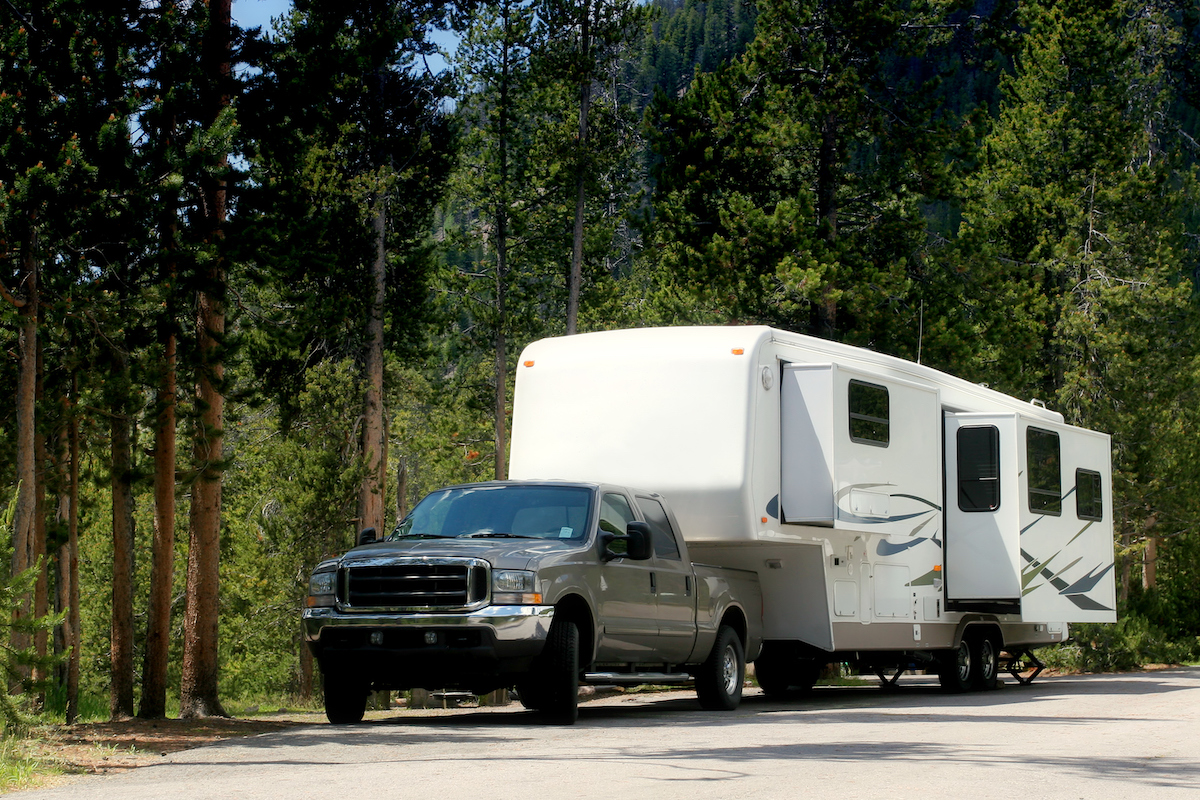
Cos'è una quinta ruota?
A rimorchio a quinta ruota è molto simile a una roulotte tradizionale in termini di aspetto, design e caratteristiche. Ma questo tipo di camper si distingue dai rimorchi convenzionali per un aspetto molto importante. Mentre la maggior parte dei camper trainabili si collega al loro veicolo di traino tramite un gancio sul paraurti, la ralla utilizza uno speciale tipo di giunto montato sul cassone di un camion.
Because of this unique hitch system, part of the fifth-wheel hangs over the truck’s bed, dramatically changing how it is towed. This approach offers some significant advantages over connecting a trailer to Un gancio di traino. Ad esempio, il rimorchio oscilla e sobbalza molto meno frequentemente, il che migliora la sicurezza e la maneggevolezza a velocità più elevate. Una ralla offre anche un raggio di sterzata migliore, utile nelle manovre in spazi ristretti.
Grazie a queste dinamiche di guida migliorate, i rimorchi a ralla possono essere più grandi dei normali rimorchi da viaggio. Ciò crea ulteriore spazio interno per più persone o un garage di bordo Per trasportare attrezzatura da esterno e altri giocattoli. La combinazione di dimensioni maggiori e prestazioni di traino migliorate contribuisce a rendere questi camper una scelta popolare tra gli acquirenti.
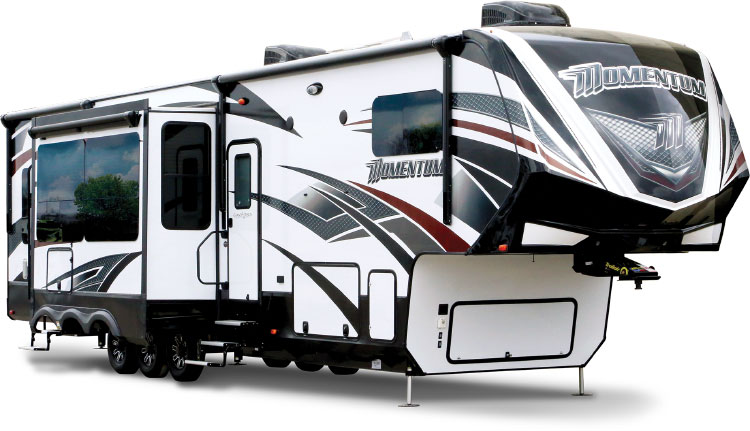
Cose da considerare quando si acquista un rimorchio a quinta ruota
Ora che sappiamo cos'è un rimorchio a quinta ruota, ecco le cose da ricordare mentre vai a comprarne uno tuo.
Qual è la capacità di traino del tuo camion?
Unlike other travel trailers, you will need a truck to tow a fifth-wheel. That’s because the accoppiamento unico used to connect the two vehicles is bolted to the bed of the truck. But more importantly, you’ll need a truck with enough towing capacity to safely pull the trailer, which is why the weight of the RV is so important.
Poiché di solito sono più grandi di una normale roulotte, una quinta ruota può pesare anche considerevolmente di più. Alcune possono superare i 7.000 kg, richiedendo un camion pesante per trainarle in sicurezza. Prima dell'acquisto, controlla le Peso lordo del veicolo (GVWR) per il rimorchio e confrontalo con il tuo truck’s towing capacity. If the GVWR is heavier than the towing capacity, you’ll either need a bigger truck or a smaller camper.
Tenete presente che aggiungendo carico, passeggeri e acqua ai serbatoi della ralla, il suo peso aumenterà. Il veicolo trainante deve essere in grado di sostenere anche questo peso aggiuntivo.
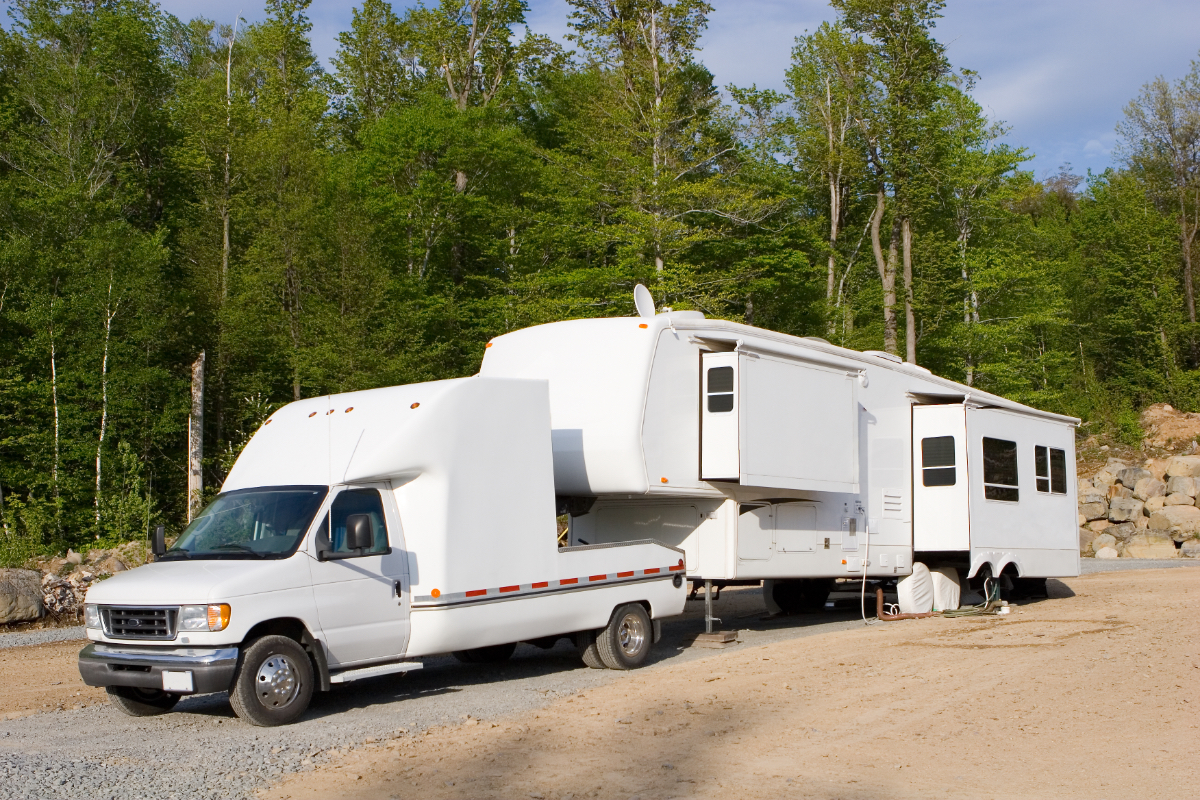
L'autostop richiede tempo, pazienza e pratica
Connecting a rimorchio a quinta ruota to a tow vehicle is more complicated and time-consuming than hitching a travel trailer to the bumper. For newcomers, this can feel incredibly daunting and frustrating, requiring plenty of patience to get things right. This can make going camping feel like an overwhelming chore at times, as rushing could potentially damage the truck or the camper.
Fortunatamente, le cose get easier over time, and adding backup cameras to new vehicles has helped speed up the process. Still, hooking up a fifth-wheel to a pickup is not as quick and straightforward as a traditional travel trailer, so expect some challenges while you work out the process.
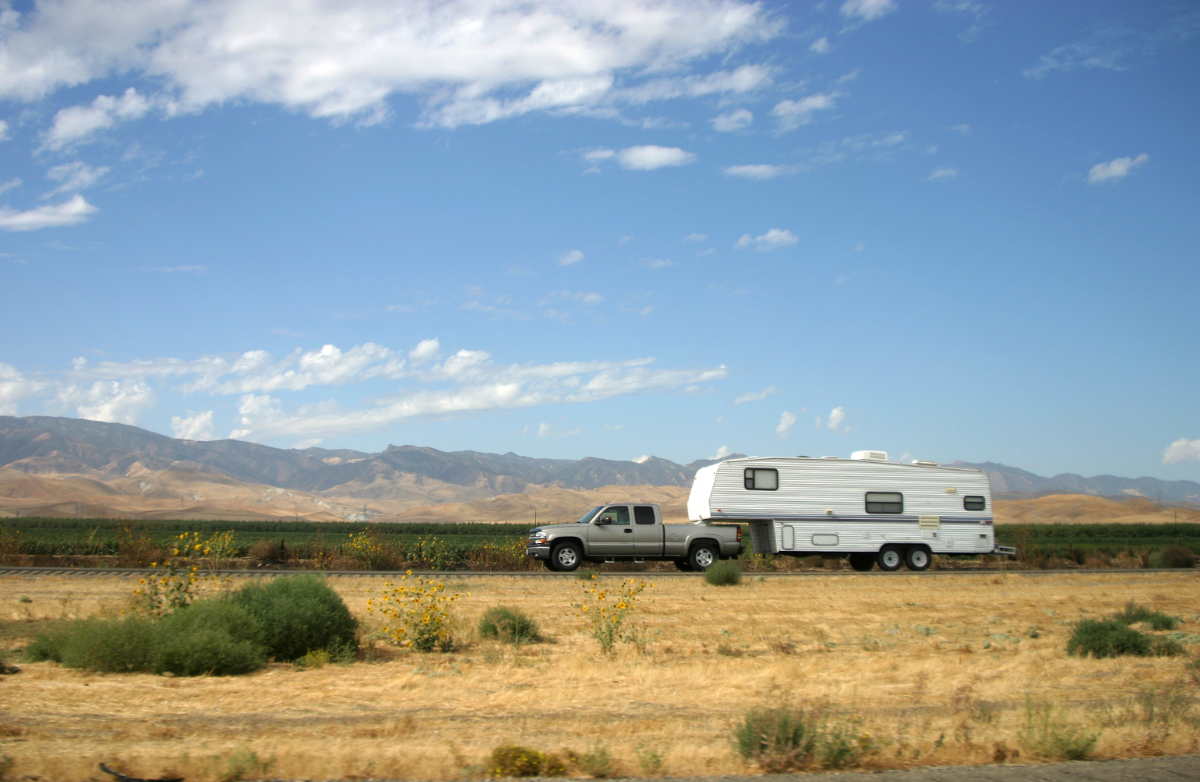
Qual è il tuo budget?
In generale, una quinta ruota costerà più di una traditional travel trailer. As always, there are exceptions to this rule, but on average, you’ll pay more for this type of RV. The added expense comes from the larger hitch configuration and the roomier interior with more features.
D'altra parte, una quinta ruota tende ad essere meno costosa di una Classe A o camper B, che spesso può costare decine di migliaia di dollari in più. Questa differenza di prezzo è in qualche modo compensata dal requisito di un camion con potenza sufficiente per trainare il rimorchio. Un pick-up di grandi dimensioni può essere costoso, ma acquistare un quinto rimorchio può essere molto sensato se ne possiedi già uno. capable of towing a large trailer. If not, you’ll need to factor a truck payment into your budget too.
Quando acquisti un camper, tieni sempre presente il limite massimo del tuo budget. Anche se potrebbe essere allettante spendere un po' di più per ottenere funzionalità e comfort aggiuntivi, la spesa aggiuntiva può rendere più difficile permettersi di portare il tuo nuovo camper in campeggio. In alternativa, potresti valutare l'acquisto di un camper. a pre-owned fifth-wheel, which could save you a lot of money and get you an older—but more upscale—camper in the process.
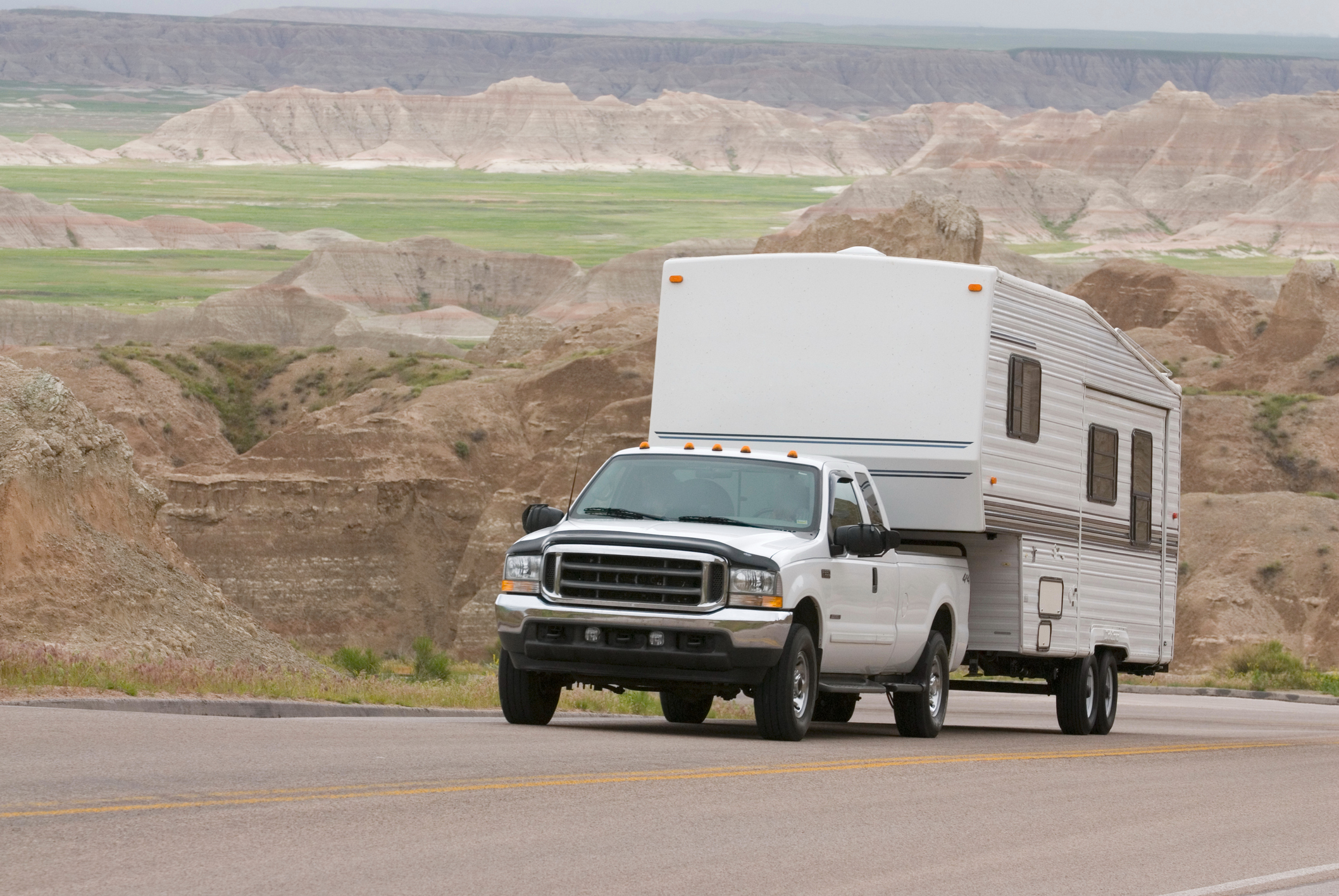
Con quale frequenza utilizzerai il tuo rimorchio a ralla?
La frequenza con cui intendi utilizzare il tuo rimorchio a ralla può giocare un ruolo essenziale nella scelta del modello da acquistare. Ad esempio, un modello più piccolo e leggero potrebbe andare bene se prevedi di campeggiare solo nei fine settimana durante l'estate. D'altra parte, se desideri utilizzarlo per periodi più lunghi, escursioni di viaggio across the country, having more features and amenities will make a difference while on the road.
Alternatively, if you are considering living in your fifth-wheel for an extended period of time—or even full-time—your list of requirements may be quite different. Having a larger model with more space is a big plus when your RV is also your permanent home. You may also want additional sleeping quarters for visiting guests or a dedicated office for remote work. Other nice options include a robust outdoor living area, abundant cargo space, and internet connectivity.
How you plan to use your RV will impact the size and floorplan of the model you purchase. By thinking about your intended use of the trailer ahead of time, you’ll have a better sense of what features you’ll absolutely need from your camper.
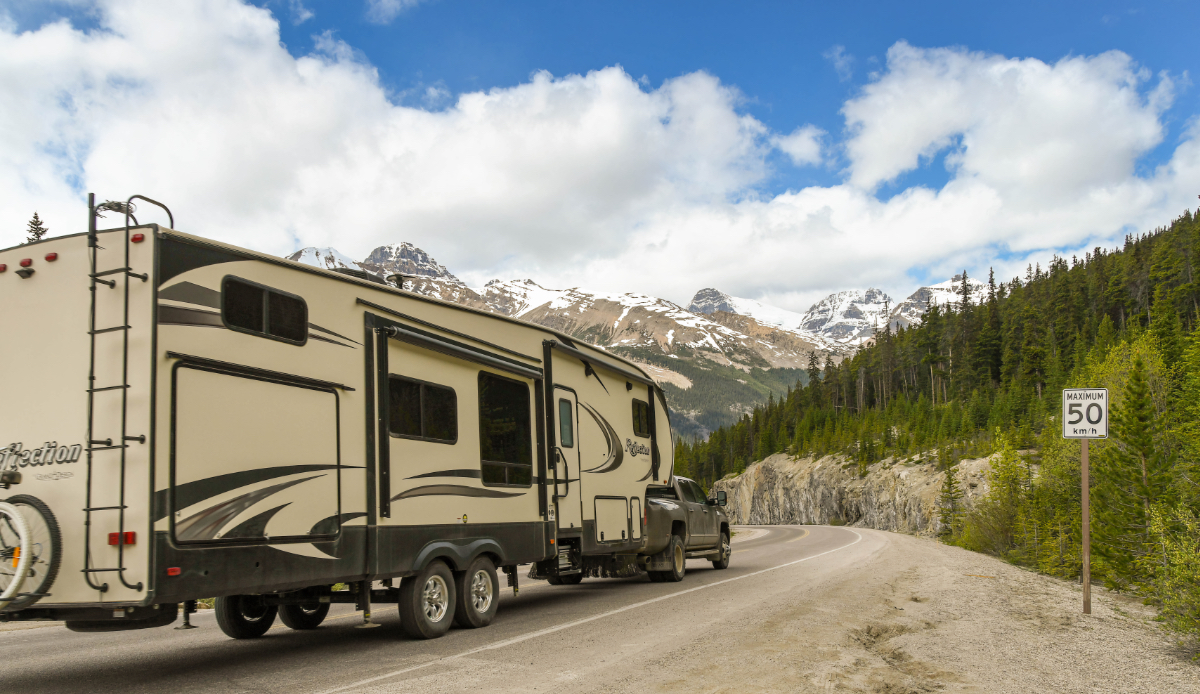
How Long Should Your Fifth-Wheel Be?
Fifth-wheel trailers generally vary in length from 25 to 45 feet, but the most popular models are usually in the 34 to 35-foot range. The trailer size directly impacts the amount of interior space available, as well as how many amenities the manufacturer can squeeze inside. Because of this, buyers often tend to choose a longer model, which can create unexpected challenges.
When deciding which fifth-wheel makes the most sense for you, keep in mind that longer trailers can be more difficult to tow. It can also be more challenging to maneuver them into a tight campsite or make your way through heavy traffic. Additionally, some campgrounds limit the length of the trailers that are allowed, which could leave you scrambling to find a place to park the RV.
Remember, bigger isn’t always better.
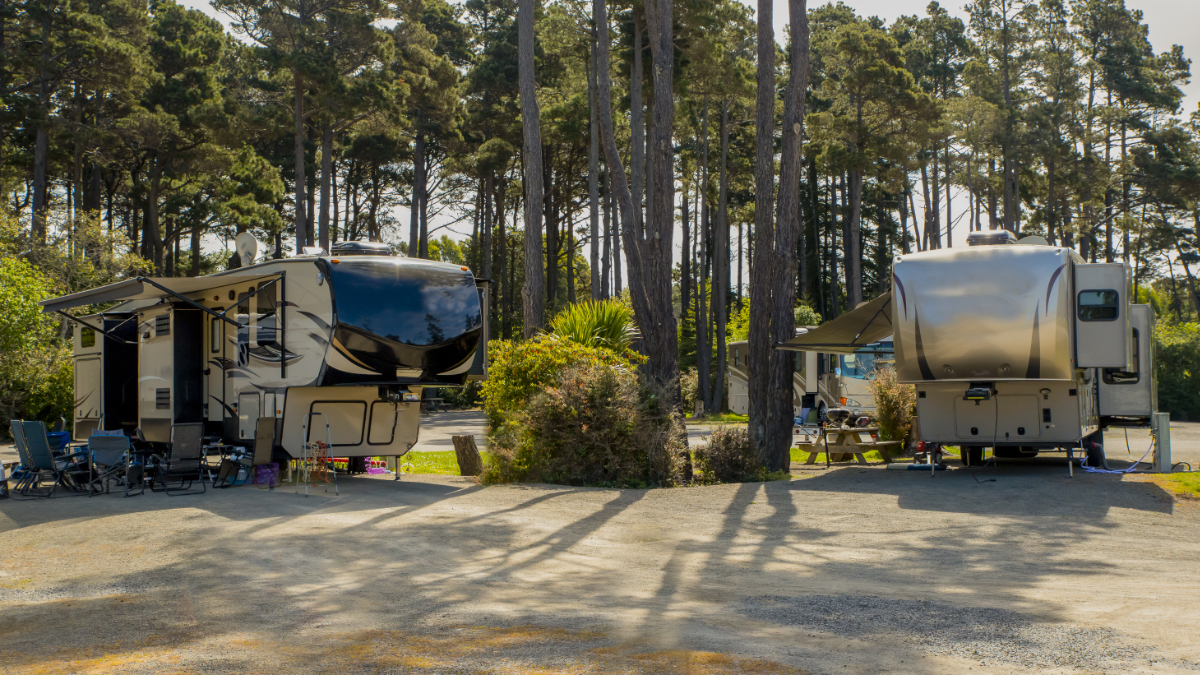
Where Do You Plan to Go Camping?
Due to their size and weight, fifth0wheel campers are best suited for use at a campground or a campsite that is easy to access. Most of these trailers aren’t equipped for wandering too far off-road, although that doesn’t mean they can’t be used for boondocking in a remote location. You’ll just need to choose the right place to accommodate a towable of this size.
While in a campground, fifth-wheel owners will often have access to full hookups that provide power, water, and sewage. The trailer you choose should have all that functionality built-in, allowing you to park and get connected a short time after arrival. But if you intend to camp off the grid, there are some additional features—like solar panels, battery packs, or satellite TV/internet—that you may want onboard your RV too.
Most fifth-wheel trailers come with fresh, gray, and blackwater tanks, but they can vary widely in size. Some are as large as 75 gallons each, which provides plenty of capacity for camping off-grid for an extended period. When selecting a trailer of your own, be sure to check the size of its holding tanks, as that will indicate how often you’ll have to refill or empty those reservoirs—which directly impacts the boondocking experience.
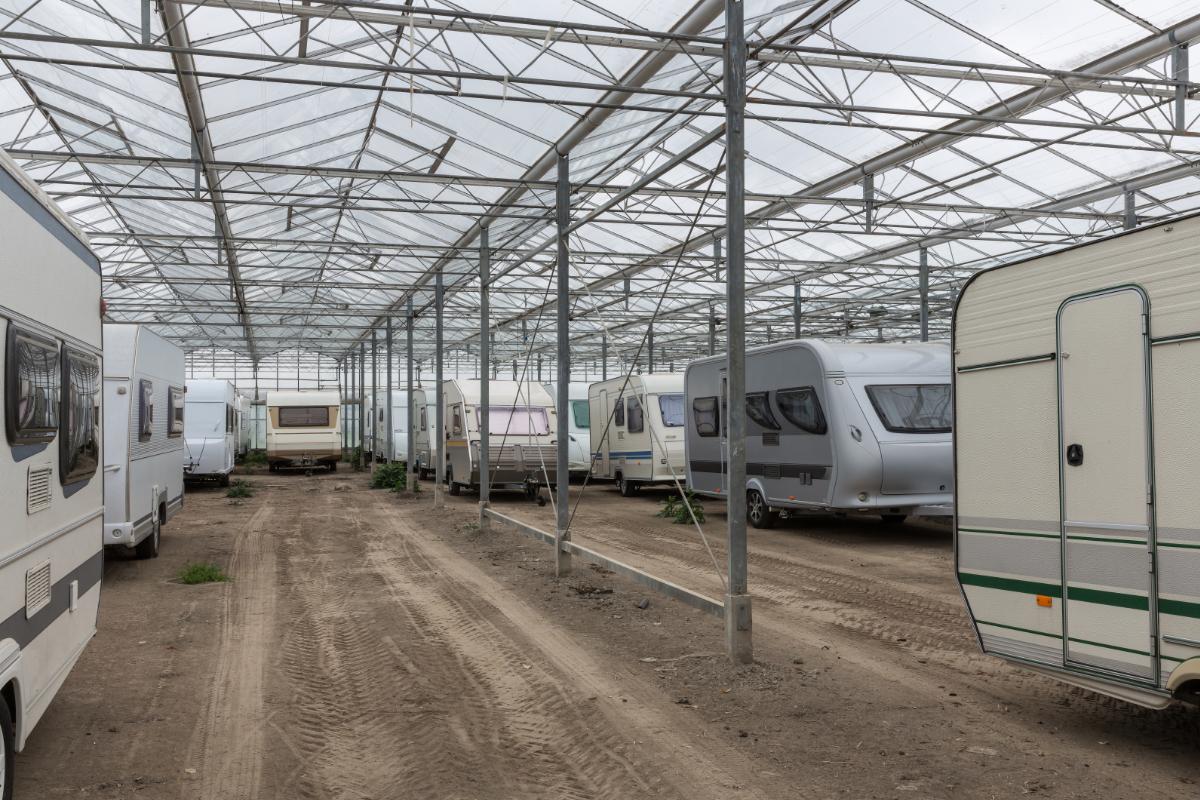
Where Will You Store Your Fifth-Wheel?
RV storage is always a challenge, no matter what kind of recreational vehicle you own. But like a Class A motor coach, finding a place to park a fifth-wheel can be especially challenging. Because these vehicles tend to be large, they won’t fit into most garages or even many driveways. And if you live in a neighborhood with a strict homeowners association, you may not be able to park your trailer there at all.
Before purchasing an RV, think about how you’ll store it for extended periods. Keeping your fifth-wheel protected from the elements when not in use can extend its life and cut down on maintenance costs. Proper storage will also provide protection from damage during extreme weather events that generate high winds or create falling limbs. A large camper is a significant investment that needs to be kept safe from harm.
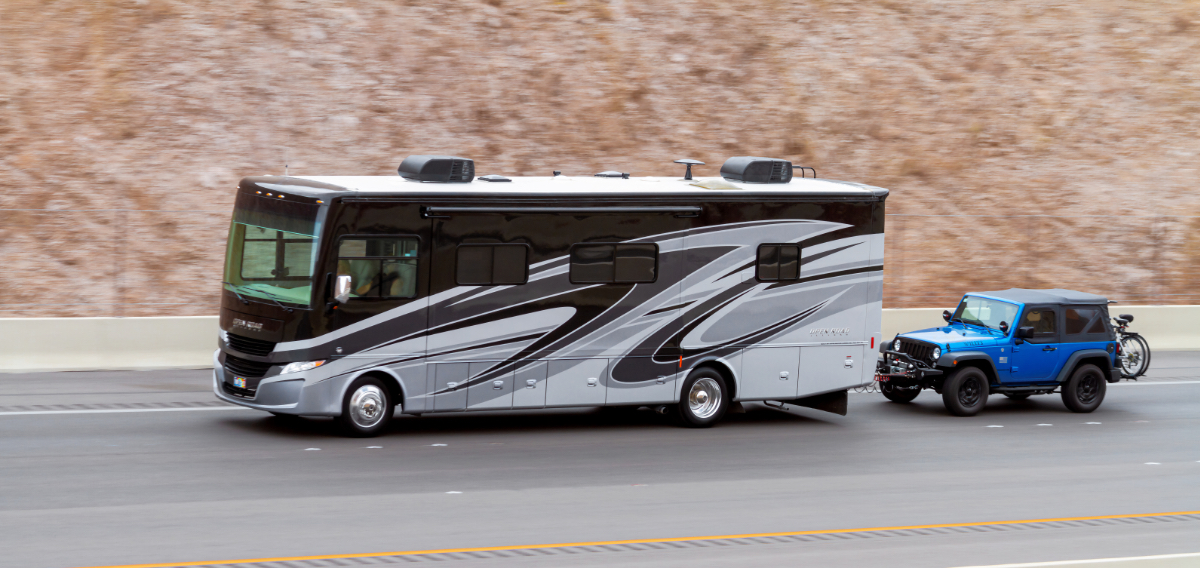
You Can’t Tow a Dinghy Vehicle
Many RVers prefer to tow a dinghy vehicle behind their motorhome for use once they reach their destination. In some cases, the dinghy is a smaller, more fuel-efficient option for exploring the local area, while others like to tow a Jeep or other 4×4 for off-road adventures.
This isn’t possible with a fifth-wheel, however, as these trailers aren’t rated for pulling a car. Of course, one of the benefits of a camping trailer is that you can park it at the campsite and use your tow vehicle to drive to other locations. In theory, this eliminates the need for a dinghy, although not everyone likes driving a large truck everywhere. In addition to guzzling fuel, pickups may not be as versatile as some other vehicles nor as easy to park.
Depending on the location of the campsite and the activities that you want to do, an e-bike or electric scooter could be a viable alternative. Not only are they easy to store and transport, but they also come with rechargeable power packs and can get you around faster than walking.
These are some of the most important things to consider when buying a fifth-wheel trailer. These RVs are some of the most spacious and luxurious options on the market, but they require a bit of planning and thinking before purchasing one. Once you understand the challenges of owning one of these large trailers, a fifth-wheel can provide years of unforgettable experiences.

